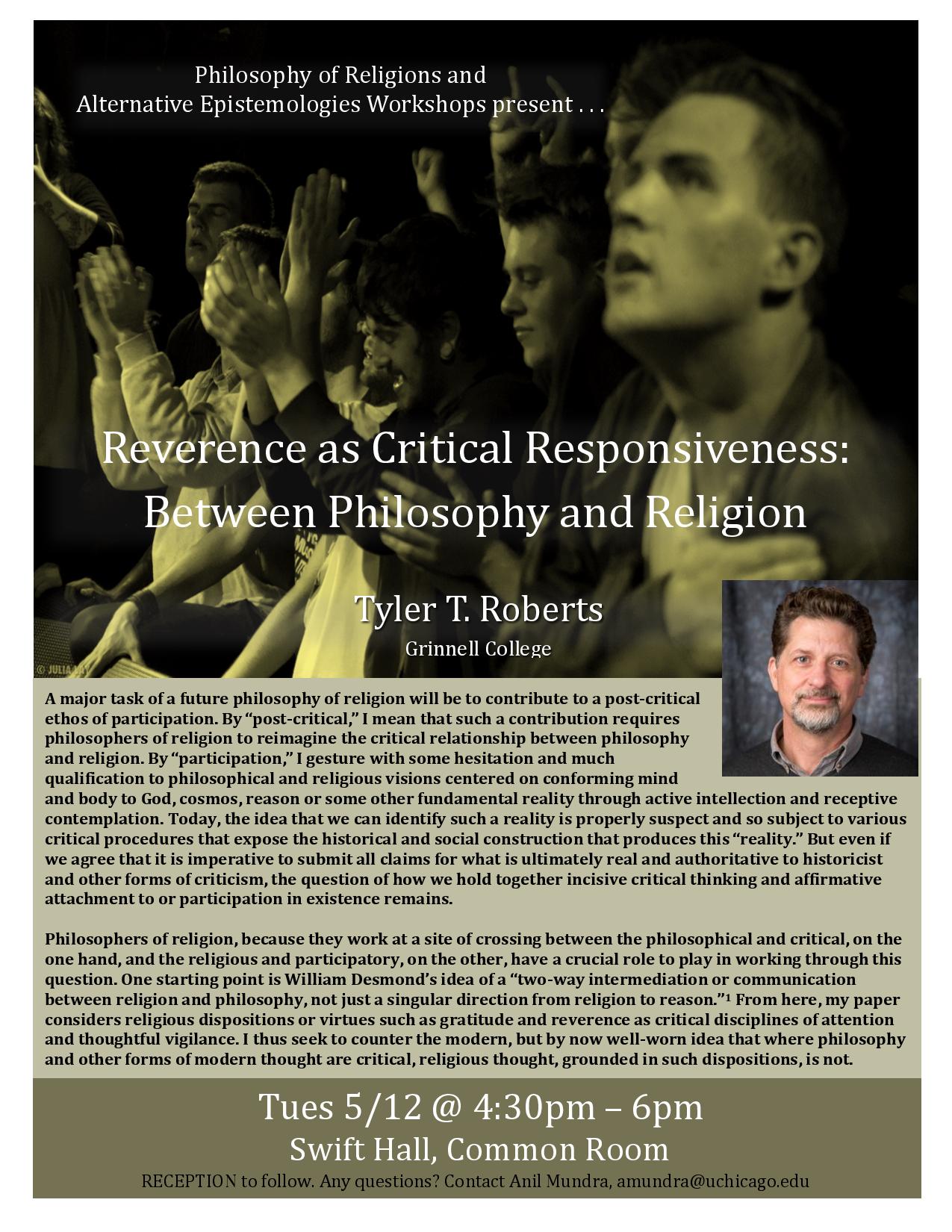Tag Archives: critique
Tyler Roberts on Religion and Critique
“Reverence as Critical Responsiveness: Between Philosophy and Religion”
Tyler Roberts, Grinnell College
Tuesday May 12, 4:30
Swift Hall, Common Room
Abstract:
A major task of a future philosophy of religion will be to contribute to a post-critical ethos of participation. By “post-critical,” I mean that such a contribution requires philosophers of religion to reimagine the critical relationship between philosophy and religion. By “participation,” I gesture with some hesitation and much qualification to philosophical and religious visions centered on conforming mind and body to God, cosmos, reason or some other fundamental reality through active intellection and receptive contemplation. Today, the idea that we can identify such a reality is properly suspect and so subject to various critical procedures that expose the historical and social construction that produces this “reality.” But even if we agree that it is imperative to submit all claims for what is ultimately real and authoritative to historicist and other forms of criticism, the question of how we hold together incisive critical thinking and affirmative attachment to or participation in existence remains. Philosophers of religion, because they work at a site of crossing between the philosophical and critical, on the one hand, and the religious and participatory, on the other, have a crucial role to play in working through this question. One starting point is William Desmond’s idea of a “two- way intermediation or communication between religion and philosophy, not just a singular direction from religion to reason.” From here, my paper considers religious dispositions or virtues such as gratitude and reverence as critical disciplines of attention and thoughtful vigilance. I thus seek to counter the modern, but by now well-worn idea that where philosophy and other forms of modern thought are critical, religious thought, grounded in such dispositions, is not.
Philosophy of Religions and Theology and Ethics Workshops Co-sponsored Event: Evan Kuehn on post-Kantian Theology
Evan Kuehn (PhD Candidate, Theology, UChicago)
“From Postulates of Reason to Doctrines of Faith: On Doing Theology After Kant”
Dec 9th, 12:00pm – 1:20pm (room TBA)
Russell Johnson (PhD Student, Philosophy of Religions) will respond
Lunch will be served
Abstract:
This paper will attempt to lay out some theses for the task of doing theology after Kant and in the spirit of his philosophical work. In particular, I am interested in the problem that faces any would-be Kantian theologian of how to offer a theological account of things like God, or the immortality of the soul, or human freedom. Kant sees these sorts of ideas as necessary postulates of reason which can, however, never become objects of knowledge for us. Yet in many cases, theologians do not consider ideas like these from such an epistemological remove. Ideas which according to Kant are merely regulatory for theoretical knowledge and at most objects of faith are, for theological inquiry, often treated as objects of knowledge. Can theology engage these objects (systematically, critically, and theoretically) as objects of theological knowledge without thereby abandoning the original Kantian framework of human knowledge limited to the categories of understanding? And what resources are available within Kant’s Critiques for dealing with these theological ideas as objects of theological knowledge?

